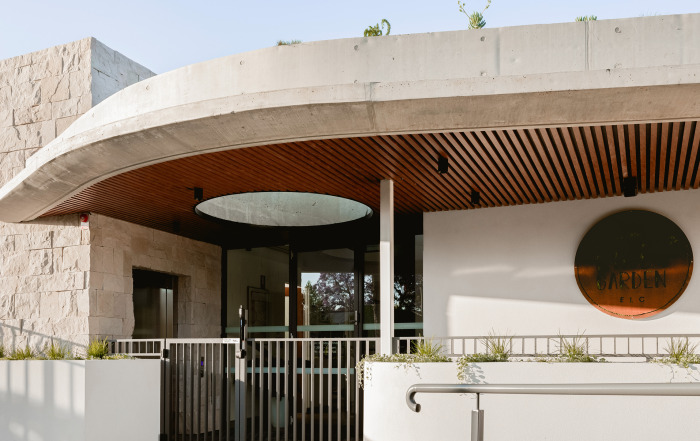The education sector is a cornerstone of society, shaping future generations and equipping them with the skills needed to navigate an ever-evolving world. As such, it is paramount that the environments in which students learn are both conducive to education and resilient to the demands placed upon them. This is where the importance of building products, especially for educational facilities, becomes apparent. Factors such as low maintenance, reliability, and material choice significantly impact the longevity and functionality of these products.


Kindy Garden – Early Learning Centre
Significance of Low Maintenance and Reliability
In educational settings, where wear and tear are inevitable due to high foot traffic and frequent use, products must be designed to require minimal maintenance. Low maintenance ensures that resources can be focused on the educational needs of students rather than the continual upkeep of facilities.
Reliable products that withstand daily rigours without frequent repairs or replacements lead to a more stable and uninterrupted learning environment. This is crucial in ensuring that the focus remains on education rather than on dealing with infrastructure issues.
Comparing Wood and Aluminium in Educational Products
Traditionally, wood has been a common material in educational products and infrastructure. However, while wood offers a certain aesthetic appeal, it is fraught with numerous drawbacks when it comes to durability and maintenance. Wood is prone to damage from moisture and pests, which can lead to splintering and degradation over time. Additionally, it is heavy, which complicates installation and maintenance, yet it is not especially strong, often requiring frequent repairs or replacements.
In contrast, aluminium presents a superior alternative for educational products. Aluminium is lightweight, making it easier and safer to install and handle. Despite its lightness, aluminium boasts exceptional strength and durability, standing up to the daily wear and tear typical in schools.
Furthermore, aluminium products are often treated to be anti-graffiti, which is a significant advantage in maintaining clean and presentable facilities with minimal effort. Our aluminium solutions also come with scratch-resistant coatings, enhancing their longevity and maintaining their appearance despite frequent use. Additionally, our advanced fixing methods ensure that installations remain secure and reliable over the long term.
Key Benefits of Aluminium in Educational Settings
-
Durability and Strength: Aluminium is resistant to corrosion and weathering, which makes it ideal for both indoor and outdoor use. This durability translates into a longer lifespan for products, reducing the frequency of replacements.
-
Lightweight: The lightweight nature of aluminium simplifies the installation process and reduces the risk of injury during handling.
-
Low Maintenance: With anti-graffiti properties, scratch-resistant coatings, and resistance to environmental factors, aluminium products require less maintenance, saving time and costs associated with upkeep.
-
Sustainability: Aluminium is recyclable, aligning with sustainability goals and reducing the environmental footprint of educational institutions.
-
Anti-Microbial: Knotwood products are treated with an antimicrobial coating, reducing the spread of bacteria and viruses in educational settings creating a healthier environment for students and staff.
Commitment to Sustainability and Innovation
At Knotwood, we are dedicated to creating products that not only meet the highest standards of quality and reliability but also contribute to a sustainable future. By choosing materials like aluminium, we reduce the environmental impact of our products. Our innovative approach ensures that we are continually improving and adapting our products to meet the evolving needs of educational environments. This commitment to sustainability and innovation reflects the values we aim to instil in the next generation, teaching them the importance of responsible and forward-thinking practices.
In conclusion, the choice of materials and the design of products for the education sector play a critical role in creating durable, reliable, and sustainable learning environments. Aluminium stands out as a superior choice compared to traditional materials like wood, offering numerous benefits that align with the needs of modern educational facilities. By prioritising low maintenance, reliability, and sustainability, we are setting a strong example for the next generation, emphasising the importance of innovative solutions in building a better future.


50x50mm Battens in Redwood.
Project details:
Architect: 868 Architects.
Builder: Rebuilt Projects.
Photographer: Studio Hill.
Similar Stories
A New Wave of Coastal Aesthetics
Contemporary coastal design is embracing the “Knotwood Look,” ushering in an exciting new era of timber aesthetics for coastal homes. The New Face of Coastal Homes. Advancements in technology allow for new
Knotwood’s 2024 AFL Toyota Grand Final Tickets Giveaway!
We're celebrating the 2024 AFL Toyota Grand Final by giving 4 tickets to one lucky fan! Follow these steps to enter for your chance to win. 1. Follow @knotwoodaustralia on Instagram. 2. Like the
The Importance of Durable Building Products in the Education Sector.
The education sector is a cornerstone of society, shaping future generations and equipping them with the skills needed to navigate an ever-evolving world. As such, it is paramount that the environments in which students








